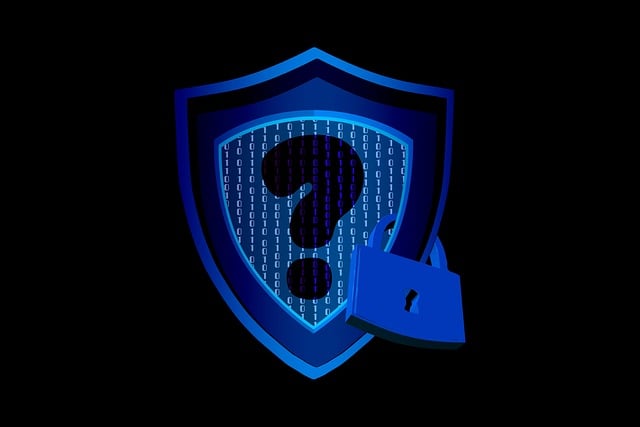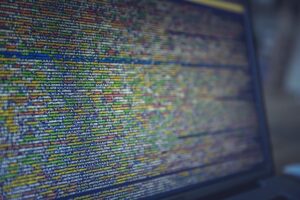Accounting and CPA firms face heightened cybersecurity threats due to their handling of sensitive financial data, with ransomware attacks on the rise. To combat this, CPAs should implement robust IT policies, regular employee security training, periodic cybersecurity audits, tools like VPNs for remote access, and strong defenses such as firewalls, email encryption, regular backups, and software patching. By prioritizing these measures, firms can effectively mitigate risks of data breaches, avert financial losses, and protect client information in the digital landscape, ensuring a secure future.
In today’s digital landscape, accounting and CPA firms face unique cybersecurity challenges. From data breaches to the escalating threat of ransomware attacks, protecting sensitive financial records is paramount. This article explores tailored cybersecurity solutions for CPAs, delving into specific strategies like ransomware prevention, proactive defense mechanisms, robust data protection, employee awareness training, and the selection of effective tools. By implementing these measures, CPA firms can fortify their defenses and safeguard critical information.
- Understanding the Unique Cybersecurity Challenges for CPAs
- The Rise of Ransomware Attacks on Accounting Firms
- Implementing Strong Defense Mechanisms: A Proactive Approach
- Data Protection Strategies for Financial Records
- Training and Employee Awareness: Your First Line of Defense
- Choosing the Right Cybersecurity Tools for Your CPA Firm
Understanding the Unique Cybersecurity Challenges for CPAs

Accounting and CPA firms face unique cybersecurity challenges due to their handling of sensitive financial data. With digital transformation accelerating, firms are increasingly targeted by cybercriminals who seek to exploit vulnerabilities for financial gain or to disrupt services. One of the most pressing threats is ransomware prevention, as malicious actors can encrypt critical financial records, demanding hefty ransoms for their release.
Beyond ransomware, CPA firms must navigate other risks such as phishing attacks designed to trick staff into divulging login credentials and data breaches caused by outdated software or weak password policies. To mitigate these challenges, CPAs should consider implementing robust IT policies that enforce strong authentication measures, regular security training for employees, and periodic cybersecurity audits. Additionally, employing tools like VPNs for CPAs can enhance remote access security, ensuring that sensitive data remains protected even when accessed from external networks.
The Rise of Ransomware Attacks on Accounting Firms

In recent years, accounting and CPA firms have become increasingly targeted by sophisticated cybercriminals, with ransomware prevention emerging as a top priority. Ransomware attacks have risen dramatically, holding critical business data hostage and demanding hefty payments for its release. These attacks pose significant risks to both clients and firms, potentially leading to loss of sensitive financial information, disruption of operations, and reputational damage.
Firms need to implement robust cybersecurity measures like a reliable firewall for CPAs, coupled with strong email encryption protocols, to defend against these threats. Additionally, establishing comprehensive IT policies that outline clear guidelines for data handling, access controls, and employee training can significantly mitigate risks. Proactive steps, such as regular system backups and vulnerability assessments, are essential in the ongoing battle against ransomware and other cyber threats.
Implementing Strong Defense Mechanisms: A Proactive Approach

In today’s digital era, cybersecurity threats such as ransomware prevention are paramount for accounting and CPA firms. A proactive approach involves implementing strong defense mechanisms that extend beyond basic firewalls and antivirus software. This includes regular security audits, employee training on phishing protection, and strict IT policy implementation to ensure data integrity and confidentiality. By adopting these measures, firms can significantly mitigate the risk of an accounting data breach, which could lead to significant financial losses and reputational damage.
A robust cybersecurity strategy for CPAs should also encompass a culture of continuous monitoring and adaptation. Staying updated on emerging threats, regularly patching software vulnerabilities, and maintaining robust backup procedures are essential components. With these proactive measures in place, firms can confidently navigate the digital landscape, ensuring their clients’ data remains secure.
Data Protection Strategies for Financial Records

In the realm of accounting and CPA firms, where financial records are the lifeblood of operations, robust data protection strategies are non-negotiable. Given the sensitive nature of client information, these businesses must fortify their defenses against mounting cyber threats, with ransomware prevention at the forefront. Beyond implementing anti-malware software and regular backups, firms should explore advanced solutions like email encryption to safeguard communications and remote access security to limit unauthorized entries. By integrating these measures, CPAs can significantly reduce the risk of data breaches and ensure client confidentiality.
Additionally, phishing protection is a game-changer in the cybersecurity arsenal for accounting firms. As attackers continually refine their tactics, using sophisticated social engineering techniques to target employees, robust phishing filters and employee training become indispensable. Combining email encryption, remote access security, and phishing protection creates a multi-layered defense that not only protects financial records but also cultivates a culture of cybersecurity awareness within the firm.
Training and Employee Awareness: Your First Line of Defense

At the forefront of cybersecurity for accounting and CPA firms lies a robust strategy centered on training and employee awareness. In today’s digital landscape, where threats like ransomware prevention are ever-evolving, educating staff is paramount. Firms must equip employees with the knowledge to identify potential risks, from phishing scams to malicious links, ensuring they understand their role in maintaining robust security protocols. Regular workshops and simulations can play a pivotal role in enhancing their cybersecurity acumen.
By fostering a culture of awareness, CPAs can become the first line of defense against cyberattacks. Encouraging employees to report suspicious activities or unusual emails promptly is crucial. Additionally, implementing measures like multi-factor authentication (a form of advanced phishing protection), securing remote access with robust VPN solutions for CPAs, and establishing clear guidelines for data handling can significantly strengthen a firm’s defensive posture.
Choosing the Right Cybersecurity Tools for Your CPA Firm

When selecting cybersecurity tools for your CPA firm, it’s crucial to strike a balance between functionality and cost-effectiveness. Start by assessing your firm’s unique needs; does your primary concern lie in ransomware prevention CPA to safeguard client data, or do you require robust phishing protection mechanisms? Understanding these requirements will guide your choice of tools, ensuring they’re tailored to your specific challenges.
Consider implementing solutions like email encryption for enhanced CPA data security. This not only protects sensitive financial information but also builds trust with clients who value data privacy. Remember, a comprehensive approach that combines several layers of defense, including anti-malware software and employee training, is the best way to mitigate cyber risks in the long term.
